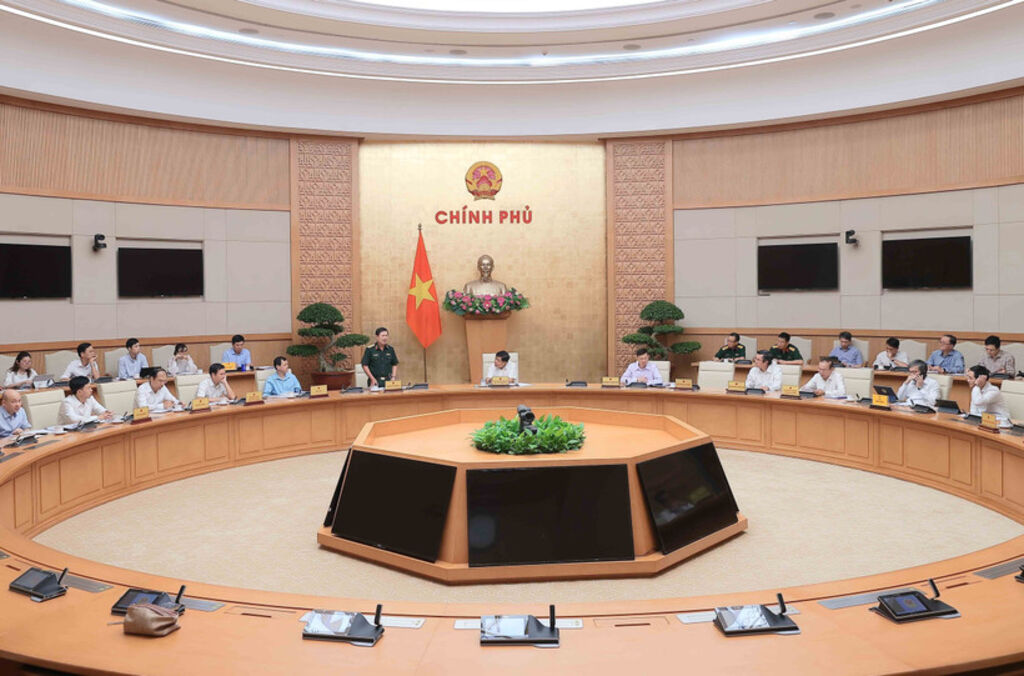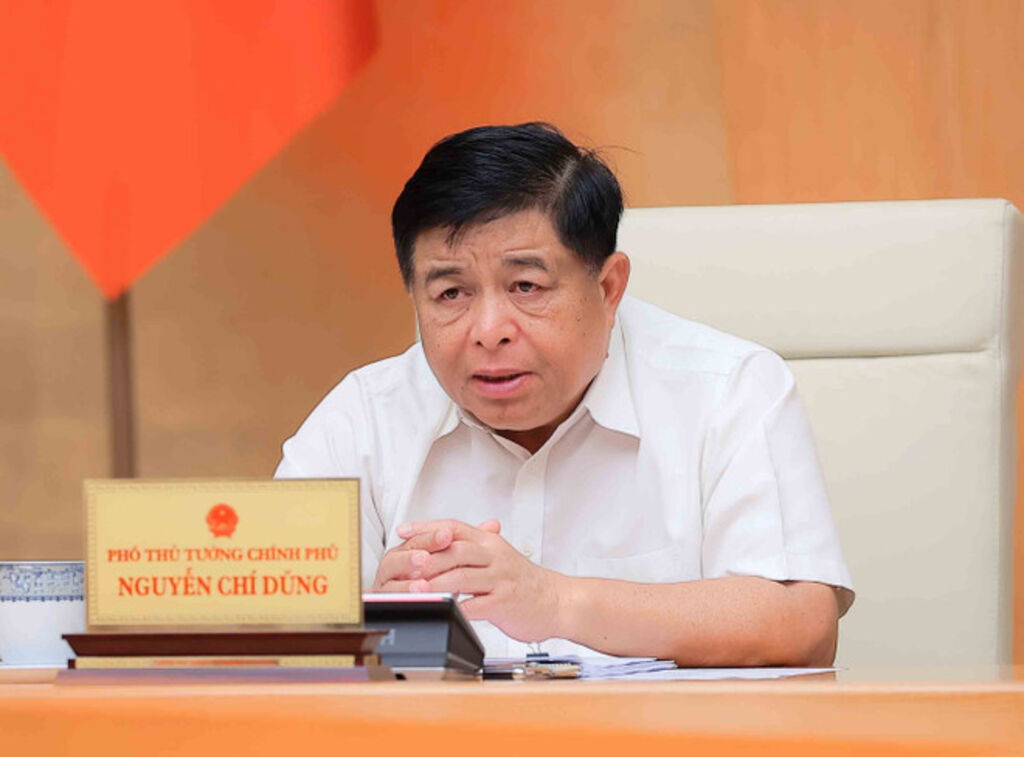 |
| A view of the meeting on September 9__Photo: VNA |
Deputy Prime Minister Nguyen Chi Dung called for aggressive sci-tech adoption in production to enhance product value during a meeting with ministries and agencies in Hanoi on September 9 to discuss strategic technological products for immediate development.
Each technological application, he insisted, must pinpoint the problem it solves, its sectoral impact, and its role in economic development.
“We need concrete products, developed as quickly as possible, to gauge sci-tech’s impact on people’s lives”, he said, calling for focused budget allocations, mechanisms, and resources to drive breakthroughs.
He also noted that strategic product development must ensure the mastery of core technologies, evidenced by patents. Ministries and agencies, many already seasoned in research and practical application, should harness their expertise to create products that could compete not only in the domestic market but on the global stage. These products must be production-ready and adaptable to global trends.
Opinions on which technologies should lead this charge remain divided, Dung acknowledged, pressing for consensus among agencies before seeking the Government's approval. A key criterion, he said, is ensuring the involvement of enterprises and scalability for broad commercialization.
 |
| Deputy Prime Minister Nguyen Chi Dung speaks at the meeting__Photo: VNA |
The Deputy PM entrusted the Ministry of Science and Technology (MoST) with spearheading this effort. Ministries and sectors were directed to identify the most critical products for each industry and assess their potential to drive economic value. They were also instructed to conduct their own analyses and submit recommendations to the MoST, which would then commission research units to develop market-driven products that not only address sector-specific challenges but also ripple outward to benefit the broader economy.
According to the MoST, a recent decision by the Prime Minister outlined 11 technology groups and 35 strategic product groups. From this list, the ministry shortlisted to six products, with one to three prioritized for early rollout.
For 2025, Vietnam has set its sights on several technologies: a homegrown large language model and virtual assistant, 5G mobile network systems and devices, AI-powered edge processing cameras, blockchain platforms for traceability and digital assets, autonomous mobile robots, and unmanned aerial vehicles (UAVs). Three of these, including the language model and virtual assistant, 5G systems, and AI edge cameras, have been greenlit for immediate rollout.
Bui The Duy, Deputy Minister of Science and Technology, elaborated on the selection criteria, saying that the chosen technologies aim to tackle Vietnam’s most pressing challenges: achieving double-digit economic growth, fortifying two-tier local governance, boosting labor productivity, and ensuring national defense and security. Beyond these, the criteria also focus on social welfare and global competitiveness, targeting products that can substitute imports, capture export markets, tap into large consumer bases, and transition seamlessly to commercialization.
Priority will be given to products that demonstrate Vietnam’s mastery of design, system integration, and core technologies, which carry a high share of Vietnamese added value, he said.- (VNA/VLLF)









